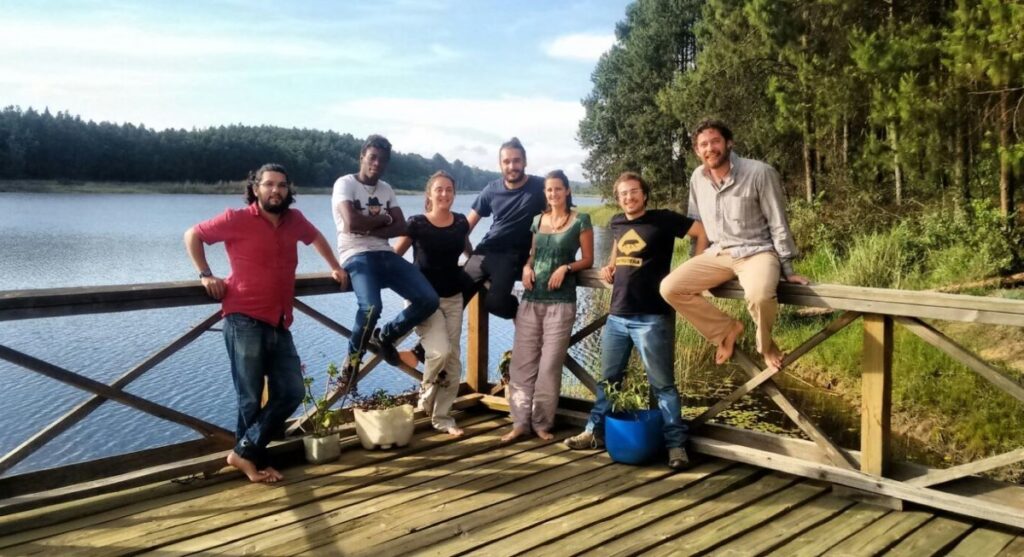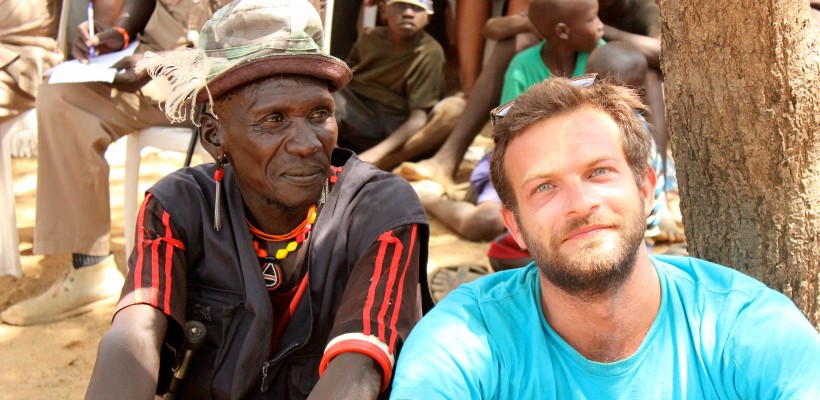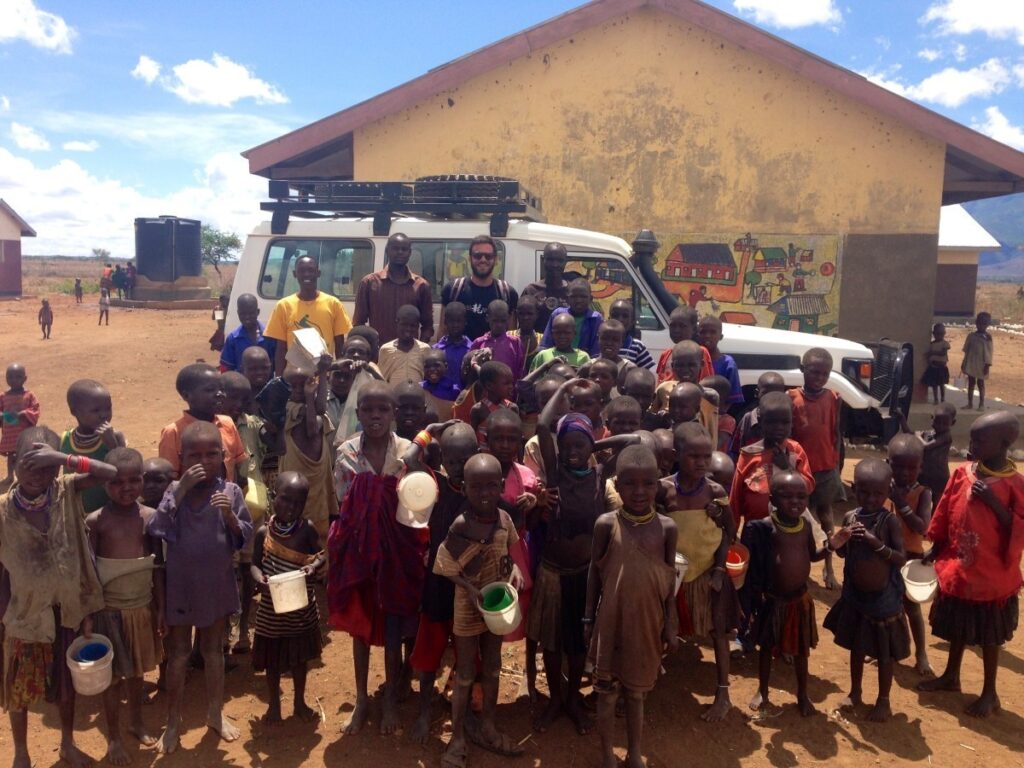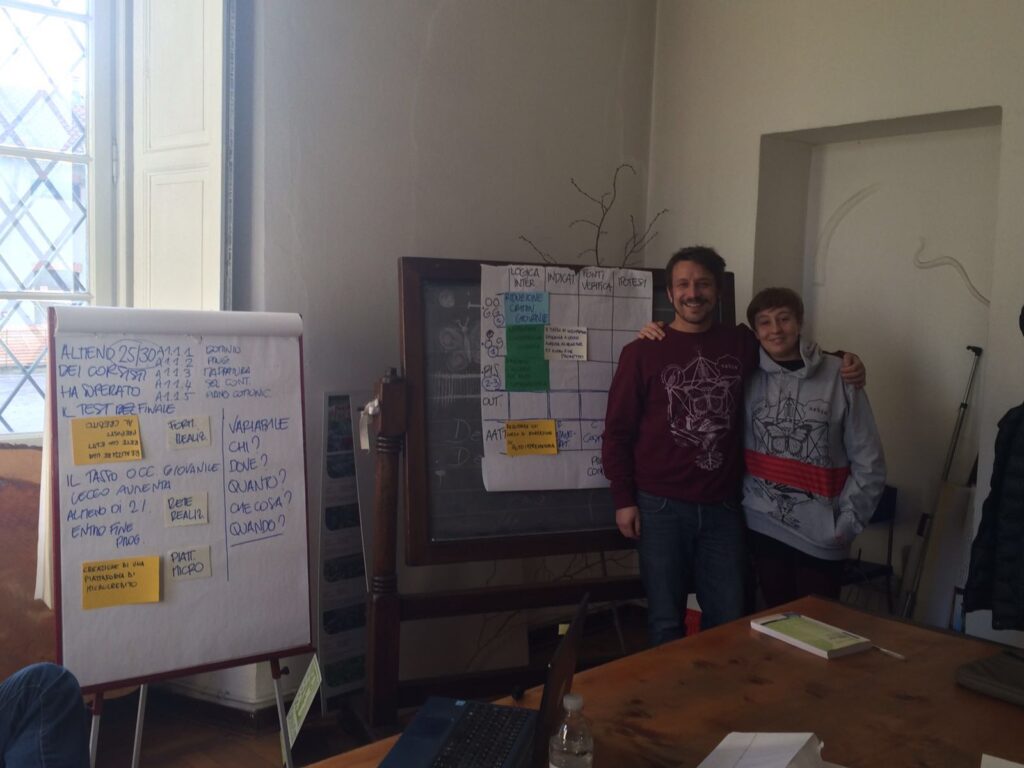Let’s have a look at what happens on the field, with the eyes of someone who right now is living an experience in Tanzania with the NGOs.
 Alexandro Frizzi Osabuohien is a young ex fellow of Master PMC – Project Management for International Cooperation, Euro-Project Management and Local Development. Alexandro is 24 years old and with the help of Social Change School’s Career Development Service had the opportunity to challenge himself with an experience on the field with CEFA in a Civil Service project. Alex is now in Tanzania and since November 2017 he has been working to create an impact by putting into practice the competences he gained during the Master.
Alexandro Frizzi Osabuohien is a young ex fellow of Master PMC – Project Management for International Cooperation, Euro-Project Management and Local Development. Alexandro is 24 years old and with the help of Social Change School’s Career Development Service had the opportunity to challenge himself with an experience on the field with CEFA in a Civil Service project. Alex is now in Tanzania and since November 2017 he has been working to create an impact by putting into practice the competences he gained during the Master.
Let’s read his words about this new experience he decided to share with us:

“Right now I am in Matembwe, a little village right above Njombe, very small and far away from the capital. A very small village of barely 3000 souls, where each day is like the other, because nothing happens. Where there is nothing. Where half of the habitants works, while the other half just watches as time goes by. Where landscapes are so sensational that every time you look at them you are completely astounded. Where people are poor, but have dignity.
Maybe this is the thing that caught my attention the most: in a place where the average wage is around 40 € per month, people have a dignity in their everyday lives that I would have never imagined. They have so little, but this does not worry them; they go around with their broken Chinese motorcycles, wear old, dirty and worn-out clothes, have a general level of education and are generally close-minded.
Everything is different in the city, there’s much more education, an oasis of wealth, but the rest is a huge slum, is chaos. Everything is beautiful and perfect where we live, while the village is a little in the South and that’s where our office is, so I really see the difference between our reality and the village’s.
The impact with this world – because it truly is another planet – was and still is much harder than what I expected. The cultural distance that divides us is massive, and this makes the habitants of Matembwe at the same time curious and suspicious, particularly of the “western black people” like me, as they can’t imagine black people who don’t have their own customs.
Some days ago, I met an Italian woman, Anna, who won the Best Italian Cooperator in the field Award. She lives here with her two Tanzanian sons and partner. 
I was smoking a cigarette with her, when her 5-year-old son arrived and had this shocked expression on his face. He was shocked because I was speaking Italian – and he had never seen a black person speaking Italian before – and also because I was smoking, since here almost nobody smokes. And he started saying “No, you cannot smoke, because you are African”.
All of my expectations were completely off: I didn’t think everything would be so different, that the distance would be so extensive.
From the working side, I am finding step by step all the things I have studied and practiced during the Master, so I am really learning how to put everything into practice. I am writing a project on Waste Management – recycling plastic and waste material. The topic is very noticeable in Tanzania, as the use of plastic has quadrupled, and yet  it doesn’t exist an apparatus of waste collection and disposal, this material is simply burned – an extremely harmful process. Our solution is to recycle plastic with the use of 3D printers.
it doesn’t exist an apparatus of waste collection and disposal, this material is simply burned – an extremely harmful process. Our solution is to recycle plastic with the use of 3D printers.
I work on many things, particularly on writing the project: activities, budget, accountancy, petty cash book, search calls for funding… In the office we are four people, so we don’t have well-defined roles; engineers mainly work on the technical part, while the other person and I work more on writing project.
Thanks to the modules we studied during the Master, I feel like I have the right competences to properly face the various phases of writing the project, as I have already encountered everything during the Master, and the theory perfectly matches what I am actually doing, as the methods are the same”.






